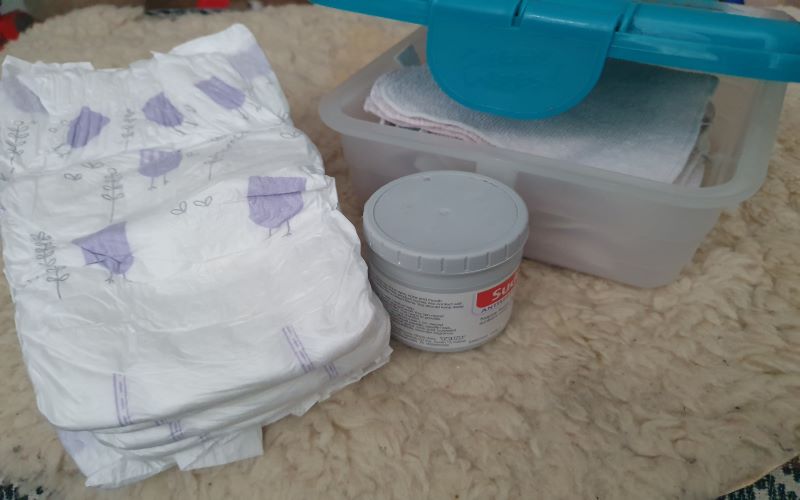We’re getting to an age where it is unusual for a child of my son’s age to still be using nappies. He was 4 in October and will be starting school in September but he is a full time nappy user.
You see my boy has complex cerebral palsy and as much as I would love to ditch the nappies he can’t physically sit on a toilet or potty.
There is equipment out there that would support him to use a toilet if he is capable of a) holding his urine and bowel movements and b) communicating when he needs to go.
However, it is not always practical outside of the home, and the number of full changing places featuring a hoist are still woefully inadequate.
So even if we do get to a point where toilet training is a possibility he will still need to use nappies or pads on a regular basis.
So now he is 4 our Health Visitor sent out an incontinence nurse to deal with our referral to the incontinence team at the hospital. She takes some history and then rather sheepishly confesses that as per protocol, before she can make the referral she is required to give me toilet training advice and then give me time to try it out to see if it helps.
We both know this is a waste of our time, but you know, policy. So she doesn’t actually go as far as to try and give advice but says she will just put the referral through in 6-8 weeks time for us.
I couldn’t help but be a little bit frustrated I’ll be honest.
At the beginning of the month I received a letter from the incontinence clinic to say that they had received our referral but that before they would make an appointment they needed me to keep a diary for 3 days showing his fluid intake and nappy output on an hourly basis.
My heart sank when I saw this. It looked like a big administrative task and my assumption was that it was to rule out underlying health issues relating to urinary or bowel output.
So it felt a bit pointless when we know his bladder and bowels work just fine.
It really felt that the system wasn’t used to dealing with kids as disabled as my son.
This isn’t the first time I’ve felt like this.
Filling in the dreaded DLA renewal forms really highlight this as well, I answer most questions with “My son requires full adult assistance with all personal care tasks” while ignoring the tick boxes which just don’t apply to him.
So I queried how necessary this was with my Health Visitor who queries it with the clinic on my behalf.
I had a very long phone call with them where they maintained the information was still useful without really explaining how but did agree to make an appointment without the diary.
They then dropped the big bombshell, they will only provide 4 nappies/pads a day. I don’t know about you but I don’t fancy sitting in my own urine and faeces for up to 6 hours at a time!
It’s not too much of a problem while he still fits in supermarket brands, they’re very cheap to buy, but once he’s into specialist products it looks like it will cost a small fortune to top up the meagre supply from the hospital.
No wonder families with disabled children spend on average an additional £581 a month to enjoy the same standard of living as families without a disabled child, with almost 1 in 4 families paying out over £1000 more.
